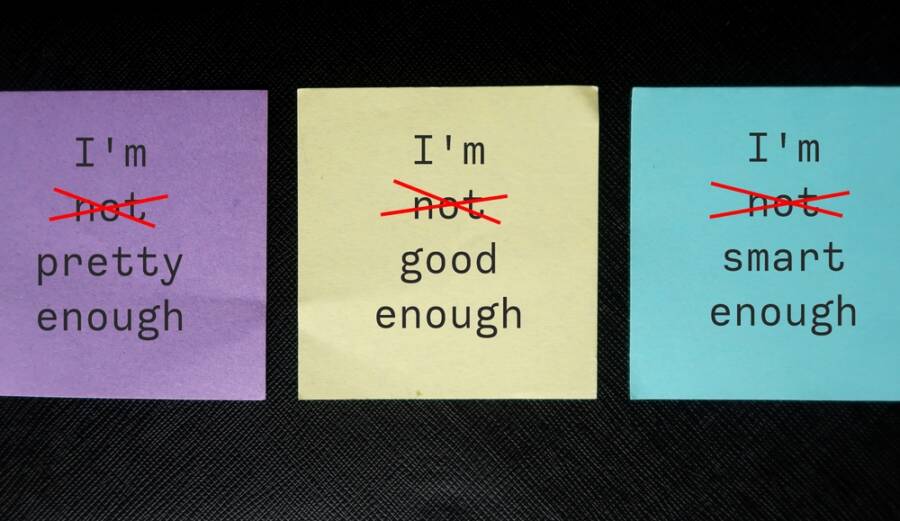Can you recognize the signs of chronic loneliness?
At some point in our lives, we were all a bit sad; maybe it was because of an unfortunate event, the loss of someone dear, or simply because retirement was near. Feelings like these aren’t considered chronic and will eventually pass.
However, if you’re always feeling blue, isolated, or lonely and this continues long-term, there may be a warning sign that you might deal with chronic loneliness. According to statistics, over one-third, or 33 percent, of Americans report experiencing loneliness regularly, which is alarming!
Since it’s a serious topic and must be treated accordingly, we will explain what chronic loneliness is, if and how it can be addressed, and more importantly, the warning signs of chronic loneliness.

How can one define chronic loneliness?
Some people need extra hours or days to recharge after social gatherings, or they are simply introverts who don’t need constant communication with others, but when lonely and uncomfortable social isolation persists over an extended length of time, it’s called chronic loneliness. It is characterized by ongoing, unshakable emotions of isolation, division, or separation from other people, as well as an incapacity to establish deeper connections. Deeply ingrained emotions of social anxiety, poor self-esteem, or self-doubt may also accompany it.
The tricky part with this condition is that, like depression, it may come in waves. So even the most lively and outgoing people can deal with chronic loneliness. If you don’t identify it, or you don’t seek help before it’s too late, chronic loneliness will ultimately affect every aspect of your existence.
Unfortunately, loneliness can happen to everyone, no matter the age, gender, or socioeconomic background. When it hits, it hits so hard, and besides the overall mental discomfort, you will also notice a change in your physique as well.
How does chronic loneliness affect one’s mental health?
According to research, being alone for an extended period can negatively affect all aspects of your health, including your mental health. According to some research, loneliness may even be associated with a higher chance of dementia and Alzheimer’s disease.
Long-term social isolation and loneliness can also impair cognitive abilities including focus, judgment, problem-solving, and even the ability to alter unfavorable self-beliefs. In the end, depression may result from it.
It’s better and highly recommended that if you go to a therapist, you inform them about how you’re feeling emotionally.
Alarming signs of chronic loneliness:
Little to no friends or people with whom you can talk
One of the first signs of chronic loneliness is when you can’t say you have enough people in your life to rely on. While you may not be completely alone and there are still friends or acquaintances who talk to you once in a while, none of them is “a best friend” or a person who can understand you.
Adulting is hard and everyone is busy with their lives and jobs, but having at least two or three people who are mindlike and supportive and interested in you and your mental health means a lot, especially in this world.
Feeling isolated and lonely even in a room full of people
This feeling can be a lingering one and probably the worst of the signs of chronic loneliness. For example, if you’re being invited to a party, you are super eager to go, but when you get there, you don’t feel very comfortable with so many people around you, even if you want to have fun. Something is off, and most probably, you will end up staying alone somewhere on a couch while others around you are dancing, talking, and enjoying themselves.
Chronic loneliness can also manifest in the workplace, such as when the team goes to lunch together and you either postpone joining them or accept the invitation but don’t engage in conversation.

Always doubting your self-worth
Do you ever feel like you’re not good enough, and every time you do something, you see it as worthless? Long-term emotions like these might also be a sign of persistent loneliness, and not having someone you can talk to about them can worsen the situation even more.
Unable to connect with people on a deeper level
Being unable to establish more personal and profound connections with other people is another sign of chronic loneliness. As we previously mentioned, people who have this condition have friends and relatives in their lives, but their interactions with them are mostly superficial.
If the interactions don’t feel satisfying and the discussions are mostly meaningless, it won’t fulfill a person with chronic loneliness’s needs. Feeling like a shadow in other people’s lives and not being heard or seen often enough is very hurtful. And this feeling intensifies when you attempt to reach out or connect, and it is not returned.
Burned out when you are trying to be social
This is one of the signs of chronic loneliness that seems unusual, and people often mistake it for an introverted character trait. But it’s not. Even if you actually crave connection, meaningful friendships, and so on, attempting to interact and be sociable with people may stress you out. This happens for a plethora of reasons, but mostly because of doubting your self-worth.
A compromised immune system, poor nutrition, difficulty sleeping, and other problems can result from persistent sensations of being burned out.
Are you experiencing at least one of these signs of chronic loneliness, and you don’t feel like there is a light at the end of this dark and long tunnel? Knowing that you’re not fighting this mental condition on your own can mean a lot, so if you’ve already decided to go to a therapist or share your story with your doctor, it might also be helpful to try and do some “work” with yourself in the meantime.
The Kindle edition of the book Overcoming Loneliness: Loving Yourself is available on Amazon. It’s an excellent addition to your library and might help you better understand your condition and, with the support of your therapist, overcome it in the end.
Can chronic loneliness be overcome?
Unfortunately, chronic loneliness isn’t exactly recognized as a mental condition, which is why it is often misdiagnosed. But that doesn’t mean it doesn’t exist, and it’s very important to not neglect your needs and accept the fact that you may need help.
Talking to a therapist is a wonderful place to start if you’re feeling lonely. A therapist might be able to identify the cause of your loneliness and offer you personalized advice on how to make meaningful relationships with other people.
Be aware of the fact that long-term feelings of constant loneliness can lead to serious health issues. Prolonged loneliness has the potential to elevate cortisol levels in the body, which may eventually result in weight gain, difficulty concentrating, and hypertension.
Don’t think poorly of yourself if you crave connection with other people, because, after all, humans are social creatures created to be around other people and have safe spaces where we can vent and share our stories. We all deserve to be heard!
Are you looking to be more informed about retirement and other things related to your golden years? It may seem overwhelming and sometimes quite a challenge; however, the team from Retirement in the USA is here for you.
Check out the Top 10 most affordable states for seniors when it comes to healthcare.



















